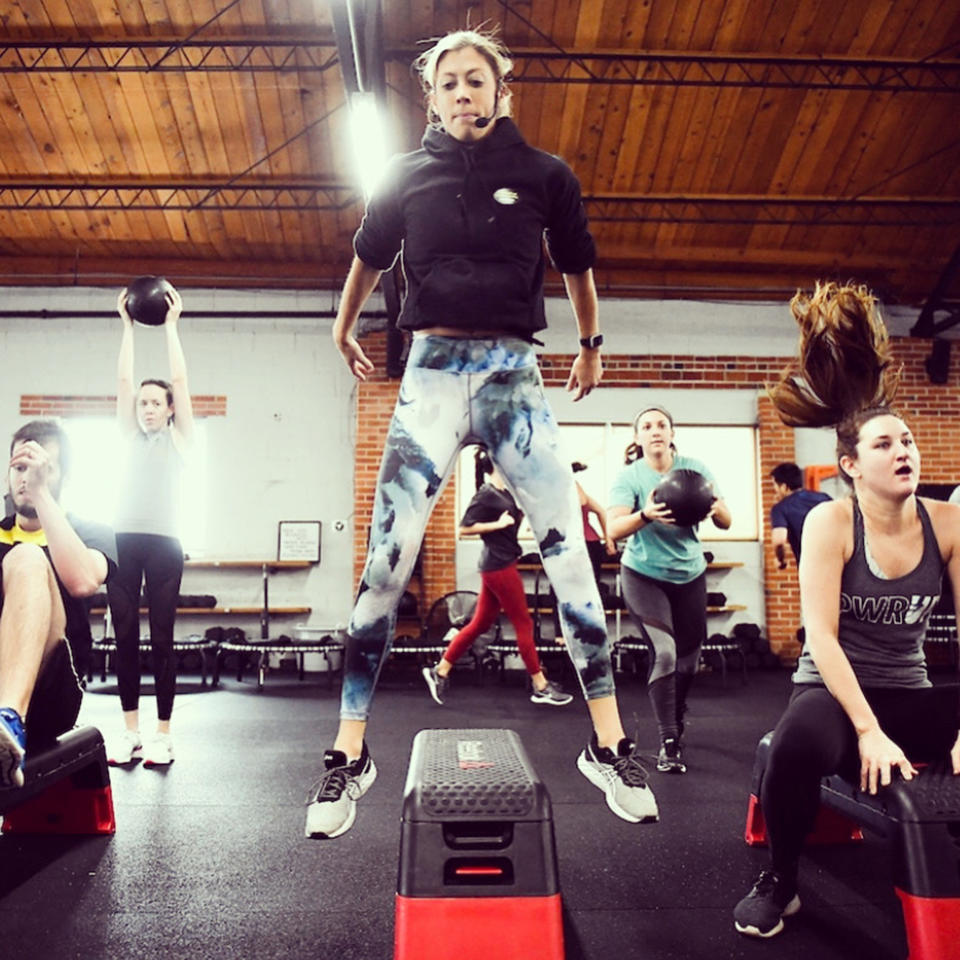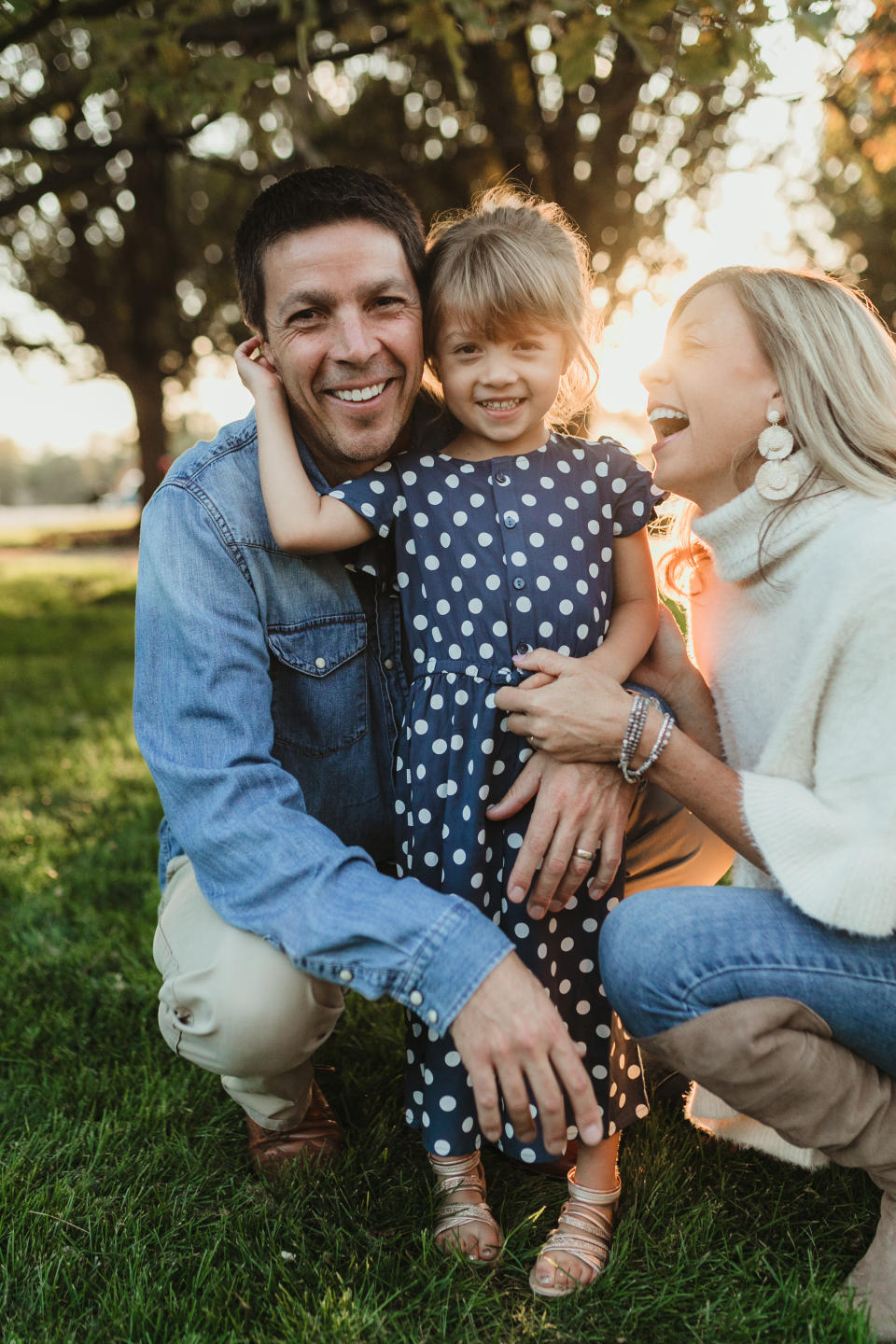Fitness instructor, 41, pushes for mammogram, discovers breast cancer
Turning 40 meant getting a first mammogram for Heather Harrington, so she was surprised when her doctor told her not to worry about it until a few years down the road.
Harrington decided to follow the advice and wait. But when her 41st birthday approached this year, she felt uneasy. Her grandmother was 42 when her breast cancer was discovered so late in the course of the disease that it had spread all over her body.
Harrington kept thinking about that mammogram.
“For some odd reason this year, I was like man, I just feel like I want to go get one,” Harrington, who lives in Denver, Colorado, told TODAY.
“Honestly, I feel like maybe it was like a tap on my shoulder from (my grandmother).”
The diagnosis: stage 3 breast cancer that will require a bilateral mastectomy.
Harrington had no symptoms and felt nothing out of the ordinary in her body. She leads a healthy lifestyle that includes plenty of exercise as a fitness instructor and gym owner.
Sitting in shock after hearing the news at her doctor’s office in August, she was convinced the clinic must have had the wrong person’s chart, she recalled thinking.
“I've always done the right thing. I work out every day, I eat right, I try to take as good care of my body as I can, and cancer just doesn't care,” she said. “It just doesn't discriminate.”

She urged other women to get checked out even as the guidance on mammograms can be confusing, with different guidelines from different agencies.
The screening can find breast cancer early, but it can also show a spot that looks like cancer but is not, leading to unnecessary anxiety and invasive tests, the Centers for Disease Control and Prevention noted.
Another worry is overdiagnosis, or finding cancer that wouldn’t have gone on to cause any symptoms or problems.
Related:
The American Cancer Society recommends women with average breast cancer risk have an annual mammogram starting at 45; while the U.S. Preventive Services Task Force advises they can wait until 50 and have the test every other year.
Both agencies say women can choose to start annual breast cancer screening at 40 if they wish to do so.
Something about waiting until 45 “just sat with me wrong,” Harrington said, noting she had no pushback when she requested her first mammogram at 41. The clinic had minimal scheduling options because of the epidemic and she almost cancelled amid the busyness of her life, but decided to just check it off the list.
After getting the screening at the beginning of August, she was asked to come back for a second look. Her family and friends reassured her it was normal for the radiologist to want to get a different picture, but she knew it was serious when it turned out she’d also been scheduled for a breast ultrasound and a biopsy.
Related:
After more tests, doctors told her they saw multiple spots throughout her breast — with the problem area spanning the size of an egg — and were concerned more spots may be found, Harrington said.
She decided on a treatment plan that will start with a bilateral mastectomy followed by chemotherapy to target her type of fast-growing breast cancer, which is being fueled by estrogen.

The diagnosis is adding to the stress of life in the midst of the coronavirus crisis. Harrington owns two gyms — an industry that’s struggling as people are wary of COVID-19 risk in health clubs and other indoor spaces.
She’s also been worrying about how her 5-year-old daughter will go through kindergarten during the outbreak.
The goal now is to stay positive: Harrington believes she has good doctors and a good shot at recovery.
“My worry is not going to change my cancer,” she said.
“I feel like there are just so many things in the air to worry about that maybe if I just put positive energy into healing rather than worrying about my health that's going to be the better route.”

